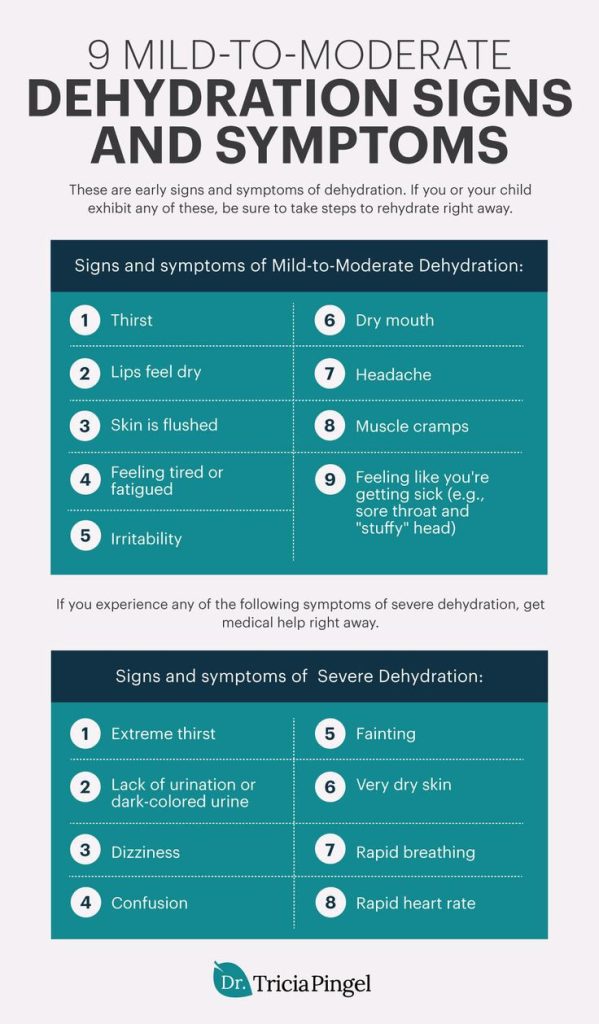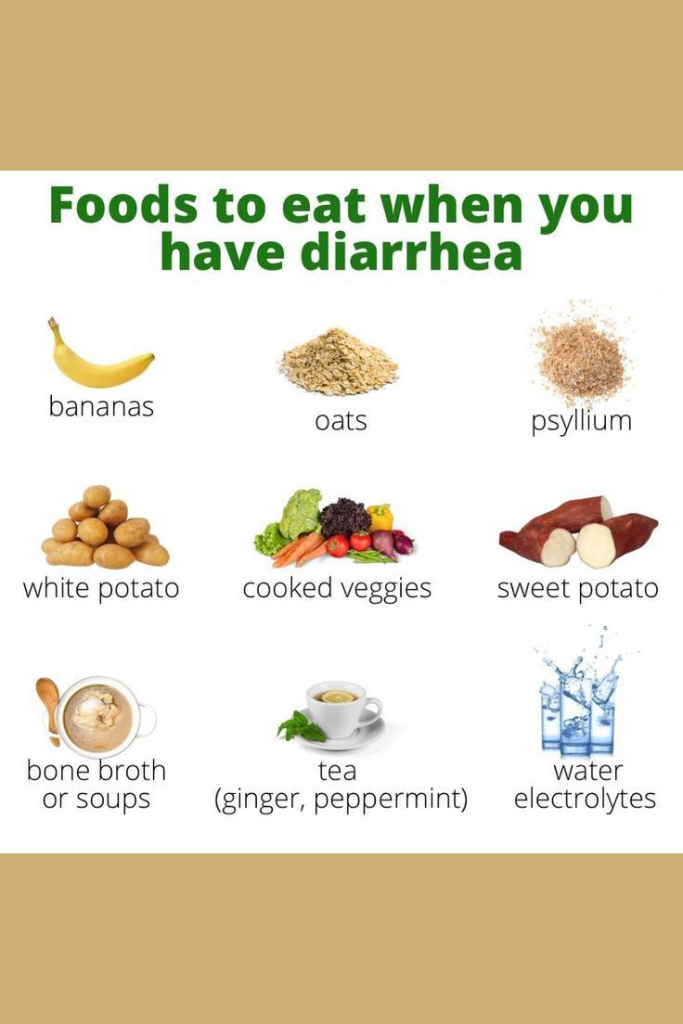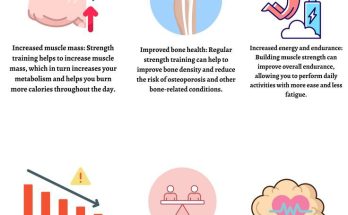Recognizing signs of hydration is important to safeguarding our lives from severe illness and conditions. It is not a joke that dehydration can lead to severe complications.
Dehydration is the excessive loss of fluid from the body without replacement. Dehydration occurs when you lose more water/fluid than you take in through any means in the form of excess urination, stooling, bleeding, etc. Dehydration could also be taken as a failure to take in enough water to meet the body’s metabolic needs and fluid loss. It is expected that an adult’s daily water intake to be 1.6L/day (1600ml/day). This can be increased depending on the person’s physical activity or metabolic rate. Sports persons can take up to 2.4L/day (2400ml).

Daily normal losses of fluid such as urine, sweating, stool, and respiratory losses cannot lead to dehydration as they are supplemented by drinking enough water and eating food, fruits, and veggies. However, these normal daily losses may be increased to cause dehydration by some disease conditions such as diabetes, and drugs. Diabetes insipidus and diabetes mellitus may lead to abnormal loss of fluid through urine. Addisonian disease brings about excess loss of fluid.
Dehydration in infants and elderly persons can almost be a life-threatening medical condition as both infants and elderly persons have less ability to conserve water.
Classification of Dehydration.
Dehydration can be classified into three major types and they include Mild, moderate, and severe dehydration.
- Mild Dehydration: Mild dehydration can respond to treatment with fluid replacement immediately. Just as the name implies, it is mild and not life-threatening. It occurs when the fluid loss from the body is not more than 5% of the Total body water fluid. Its symptoms include excessive thirst, dry mouth, dizziness, weakness, body cramps, etc.
- Moderate dehydration: People with Moderate dehydration respond well to adequate fluid replacement. This occurs when the fluid loss from the body is about 10% of the total body fluid. Its symptoms are similar to Mild dehydration and include sleepiness or tiredness, sunken eyes, lack of tears while crying, and reduced urine frequency. Moderate dehydration when neglected proceeds to severe dehydration.
- Severe dehydration: This is a life-threatening condition. Severe dehydration occurs when fluid loss from the body is 15% or more of the Total body fluid. The management of patients with severe dehydration will include hospitalization with emergency attention by qualified medical personnel. Its symptoms include fainting, decrease in cardiac output, reduced blood volume, low blood pressure, rapid heart rate, weak pulse, cold hands, acute renal failure, hypo volumetric shock, irritability, confusion, etc. This stage if poorly managed can lead to death.
Causes of Dehydration.
There are quite several things that can lead to dehydration, these things can help you recognize the signs of dehydration.
- Not drinking enough water: Drinking enough water cannot be over-emphasized because it turns out to be the most common cause of dehydration. When your body does not receive enough water throughout the day, especially during hot temperatures, your body can quickly deplete the water it retains.

- Diabetes: Diabetes causes your blood sugar to rise, when your body doesn’t make enough insulin this can increase urination leading to fluid loss. If you have sugars of mild dehydration, then it is advisable to drink more water to manage your diabetes which can help balance your fluid level and improve hydration.
- Drugs (medications): Certain medications can lead to excessive fluid loss, this is why it is advised to always follow doctor’s prescriptions. Some of these medications include
- Laxatives (for constipation): With a doctor’s prescription, laxatives won’t remove too much water from your body, but if you take more than the doctor’s prescription then it can lead to dehydration.

- Chemotherapy (for cancer patients): About 80% of people who get chemotherapy develop side effects of vomiting and diarrhea and when you keep vomiting or have diarrhea for hours or continuously for a few days, then you can get severely dehydrated.

- Diuretics(water pills): This removes salt and water from your body when you urinate but taking more than the doctor’s prescription could lead to dehydration.

- Excessive sweating: Sweating is a form of loss of fluid through the skin and it is perfectly normal. During rigorous exercises or Hot temperatures, you begin to lose fluid (sweat) and when you don’t replace the fluids as you go along, it gradually leads to severe dehydration.

- Vomiting and diarrhea: Acute diarrhea can lead to loss of fluid but when you vomit and also have diarrhea loss of fluid becomes more severe as you lose even more minerals which can lead to acute (severe) dehydration.

Recognizing signs of dehydration.
Dehydration can happen to anyone, infant or adult, male or female and it is important that you recognize these signs to take necessary measures. Below are the symptoms of dehydration which you can use in recognizing signs of dehydration.
Symptoms of dehydration in infants.

To recognize signs of dehydration in your child, look out for the following symptoms.
- Dry tongue/mouth.
- Sunken eyes, cheeks, and soft spot on top of the head.
- No tears while crying.
- Cold hands and feet.
- Dry skin.
- Irritability.
- No wet diapers for 3 hours.
Symptoms of dehydration in adults

To recognize signs of dehydration in yourself or any adult around you, look out for the following symptoms.
- Dizziness and weakness.
- Severe thirst.
- Less frequent urination.
- Fatigue.
- Flushed/pale skin.
- Muscle cramps.
- Constipation.
- Dark coloured urine.
- Dry cough.
- Swollen feet.
- Low blood pressure.
Complications of dehydration.
Dehydration can lead to a lot of complications. It can lead to more severe illness and conditions if not death. Some of these complications include
- Seizures: Seizure electrolytes like potassium and sodium help carry electrical signals from cell to cell, severe imbalance of the electrolytes can cause involuntary muscle contractions and dehydration.
- Hypo volumetric shock: Hypo volumetric shock occurs as a result of losing more than 15% of your body’s fluid or blood and it can impair your heart function. This is a life-threatening condition.
- Acute renal (kidney) injury: Acute renal injury is an inadequate kidney function. It can be caused by dehydration, this is due to decreased renal blood flow from low blood pressure.
- Anaemia: Anaemia is a low red blood count. Lack of fluid intake causes anaemia. This occurs when there is a change in the size of smaller red blood cells which is accompanied by reduced hemoglobin.
- Heat injury: Dehydration is a serious heat-related condition. Heat injury includes heat stroke, heat cramps, and heat exhaustion. Heat exhaustion occurs as a result of excessive loss of water and salt usually caused by sweating.
Conclusion.
Dehydration as we have seen is severe and one needs to be careful and take good care of oneself to avoid the numerous conditions associated with it.
Recognizing signs of dehydration is important and one should always look out for these symptoms. Prevent dehydration (drinking enough water and eating more fruits and veggies) as much as you can and see a doctor when needed.



